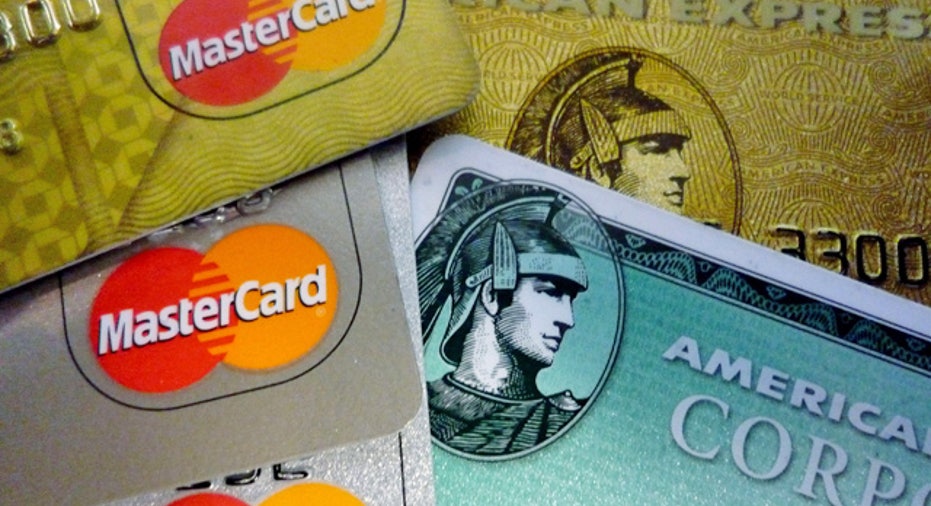How to Keep Credit, Debit Card Blocking From Ruining Your Vacation

Before you even pull the flip-flops out of your suitcase for your week of vacation, your available credit may appear as though you've already paid for the whole trip.
Blame it on credit or debit card blocking -- the completely legal practice of merchants blocking off what they assume will be the entire charge for your hotel stay or car rental to cover themselves in case you run out of funds by the end. They may add in extras, such as room service fees, tips, taxes, even rental car damage fees, etc., that they estimate you will owe. The amount isn't actually gone from your account -- you just can't use it for other purchases.
It's not a problem for people who don't get near their limit. They probably aren't even aware that it has happened. But for people who live life close to the credit or debit edge, it could be trouble. You could be embarrassed by a declined card if the block takes you to the limit and you try to charge on top of that. Or checks could bounce if you think you still have room in your debit account.
Even gas stations will place a block on credit card funds -- often $50 to $100 -- because they don't know how much you will pump when you swipe the card. This can be a problem, especially if you don't keep much in your debit card account, because the block usually lasts two to three days.
"You may only be getting $15 worth of gas, but they may be holding $100. You may go to buy lunch and get your card declined because technically you have it, but you don't because it's blocked," says Shawn Walsh, director of outreach for InCharge Debt Solutions in Orlando, Fla.
Such unpleasant surprises can ruin a vacation because holds can last for days.
Say you're heading to the beach over Labor Day and you want to rent a scooter, but there's a $200 hold fee. If you give them your card for yourself or a group, they'll block that amount per scooter, and you may not have funds available for the rest of your weekend, Walsh says.
"The way to get around that, if you have the ability, is to hold them with cash," he says. "When you return the scooters, you get the cash back and there's no hold and you can continue your vacation."
More restaurants are also starting to place a block on your credit if you keep a tab open, says Tanisha Warner, a spokeswoman for Money Management International. If your card is the one keeping the tab open for a large group, you may have a sizable hold placed on your account for days.
There are strategies to avoid surprises on your trip:
--Check your debit or credit limit before you go and make sure you have room for charges.
--Ask your credit or debit card issuer whether it allows blocks and for how many days and for what expenses. Also ask the merchants if they will be blocking off funds and what expenses are included, or look for their policy on the company website, says Harrine Freeman, CEO of H.E. Freeman Enterprises in Bethesda, Md., and author of "How to Get Out of Debt: Get an 'A' Credit Rating for Free."
--Take an additional form of payment, such as cash or a second credit card, on a vacation in case you reach a limit, says Freeman. That way, if you miscalculate on one, you have a backup plan. Be aware that most rental car companies won't let you pay with cash.
--Call your bank after you have completed the transaction if you need to free up room on your limit. You may be able to get the block lifted early, Freeman says.
--Check out of a hotel with the same card you used to reserve the room. Otherwise, the original card issuer won't know you're finished with the transaction, Warner says. According to the Federal Trade Commission, a block under those circumstances could last up to 15 days.
--Tell a hotel upfront that you're reserving the room with a credit card, but you will pay with cash when you check out. That may keep them from putting on a block in the first place, depending on the hotel, Walsh says.
--Pay with cash at the gas station. Some stations will even discount the gas if you pay this way because they don't want to pay the swipe fees.
--If you use a debit card for gas, pay inside where you can use your PIN number instead of at the pump; PIN-based transactions are registered immediately, according to the FTC.
--Double-check with your bank when you get home to make sure the block has been removed.
Know that the burden is on the consumer to find out about these policies, and that policies differ by the vendor and by the bank.
"Anytime a consumer puts plastic out there, they need to ask questions," Walsh says. "When you go to a hotel and give them a card, they're going to be upfront with you that they're not going to take anything out," Walsh says, but they don't tell you that they're going to block your access to the funds.
More from CreditCards.com:



















